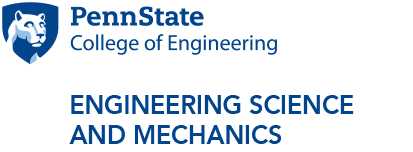Self-Designed Option

The self-designed option in engineering science is for students whose interests do not align well with one of the other available options. Recent examples of self-designed options include:
- the application of machine learning to problems in architectural engineering,
- the study of computational quantum and molecular physical chemistry at the interface between engineering, chemistry, physics, and materials science.
Working with their academic advisor, students who pursue this option will design a program of study that includes classes and a capstone project that allows them to achieve their goals.
Foundational Electives (15 credits)
All engineering science students must take 15 credits of foundational electives, which is typically five classes. All students must take at least three credits of design electives, which are chosen from a departmental list. Courses outside the departmental list may fulfill the design requirement by petition.
The remaining 12 credits of foundational electives are typically 200- or 300-level courses foundational to your chosen area of study and are prerequisites for more advanced courses of interest. These courses may be chosen from the College of Engineering, the College of Science, and the College of Earth and Mineral Sciences.
Technical Electives (12 credits)
All engineering science students are required to take 12 credits of technical electives. These courses are typically 400-level, though they can be graduate or 300-level in some circumstances. As with the foundational electives, these courses are chosen with the help of an academic advisor as part of an integrated program of study and can be chosen from the College of Engineering, the College of Science, and the College of Earth and Mineral Sciences. The one additional requirement is that at least two of these courses must be engineering classes (e.g., 12 credits of physics and math classes may not be used to fulfill this requirement).
Capstone Project (6 credits)
All engineering science students complete a capstone project by taking ESC 409, 410, and 411. For this project, students work closely with a faculty member to complete a research or design project. The faculty member and the project are typically chosen during the spring semester of the third year, and it is completed during the spring semester of the fourth year. Students typically work with faculty in the engineering science and mechanics department, but they may work with faculty in other departments in the College of Engineering, the College of Science, or the College of Earth and Mineral Sciences.
Undergraduate Options
- Overview
- Experimental Mechanics and Materials Option
- Materials and Design in Manufacturing Option
- Micro- and Nano-structured Devices for Biological and Biomedical Applications Option
- Neural Engineering Option
- Semiconductor and Quantum Materials and Devices Option
- Signals, Systems, and Sensing Option
- Theoretical and Computational Mechanics Option
- Acoustics Option
- Self-designed Option
-
Self-designed Option
- Foundational Courses
- Technical Electives
- Capstone Project
-
Contact
- Gary L. Gray
Associate Professor and Associate Head for Undergraduate Programs
euler@psu.edu



